EXPERT
Issues
Locations
DOWNLOAD
Disclaimer: The VRIC Monitor does source a limited amount of media reports from state-owned or -controlled media outlets from VRIC nations. These media reports are carefully selected and solely intended to report on cultural, diplomatic, economic, or military activities that are not reported on by other media and relevant for understanding VRIC influence in the region. Given the inevitability that state propaganda will be mixed into these articles, we ensure that reporting from state-media outlets is no more than 20 percent of the overall VRIC Monitor and exclude any opinion pieces or anti-US (anti-West) declarations of any kind.
OVERVIEW
Iran’s increased maritime engagement in the Western Hemisphere is causing concern for U.S. officials closely monitoring and blocking some of this activity. This relatively new problem set is poking at specific chinks in the armor of U.S. sanctions. Aside from the mass propaganda by the Maduro regime announcing the arrival of the original five Iranian tankers in May, at least 103 other tankers have visited Venezuela for the first time in the past year, according to one study. Many of them use sanctions-evasion techniques such as ship-to-ship transfers and turning off their transponders.
Of concern is the potential dual-use of these supposed gas and oil shipments to and from Venezuela, particularly as it relates to Iranian state-owned companies known for the proliferation of WMD materials and means of delivery. Four of the Liberian-flagged vessels intended for Venezuela are part of a civil forfeiture complaint by the Department of Justice that links the ships to Iran’s clerical army, the Islamic Revolutionary Guards Corps (IRGC), who recently set up a supermarket in Caracas, the first of its kind. While attention is on Venezuela, IRGC-linked vessels are appearing elsewhere in Latin America, namely in Brazil and Panama, in what appears to be a coordinated effort with Cuba and China.
China and Iran’s strategic partnership just reached greater levels with the signing of a new 25-year trade and cooperation agreement, which entails large scale military cooperation. Being that Beijing and Tehran are allies of the Maduro regime, it’s likely that this cooperation will impact Venezuela. One potential area of collaboration is space and cyberspace, where China and Russia have made significant advances in the Western Hemisphere. In what Beijing calls the “information silk road,” China has completed its global satellite tracking system, known as the BeiDou, a competitor to the U.S.-owned GPS, part of China’s new quantum communications network. Meanwhile, Russia signed a satellite cooperation agreement with Brazil this past month.
The VRIC convergence in Venezuela was evident in mid-June when Alex Saab, a Colombian businessman, was arrested in Cape Verde off an Interpol Red Notice in his name. The Saab case is instructive in understanding the dark networks developed beneath the surface of a military-assisted, humanitarian aid operation in Venezuela. These dark networks are continuously disrupted by U.S. sanctions in what is a new battleground for the VRIC–humanitarian assistance.
MUST READS:
- SITREP: Iran, Turkey, and Venezuela’s Super Facilitator: Who is Alex Saab? by Joseph Humire, Center for a Secure Free Society
- REPORT: The Organization For The Liberation Of Argentina (OLA) – Building Support For The Iranian Regime And Hezbollah by the Middle East Media Research Institute
- Experts foresee the designation of Venezuelan forces as terrorist organizations by Gustavo Ocando Alex, Voice of America (content in Spanish)
- Tehran Just Sold its Soul to Beijing in Al Hurra Digital by Ilan Berman, American Foreign Policy Council
- China Reaches New Milestone in Space-Based Quantum Communications by Karen Kwon, Scientific American
- STAYING AFLOAT: Shipping Networks in the Wake of U.S. Sanctions on Venezuela by Sofia Vargas, C4ADS and IBI Consultants
- Special Report: How China got shipments of Venezuelan oil despite U.S. sanctions by Luc Cohen and Marianna Parraga, Reuters
- Amid crisis, Venezuela’s Maduro seizes control by Félix Seijas Rodríguez, America’s Quarterly
- How Maduro’s crime-terror networks could use national protests to threaten the U.S. by David Grantham, Center for a Secure Free Society
- Press Release on Disinformation Campaign Regarding the Role of the OAS in the Bolivian Elections by the Organization of American States
TRUMP ADMINISTRATION ON VENEZUELA
- WHITE HOUSE: Remarks by President Trump in Briefing on SOUTHCOM Enhanced Counternarcotics Operations
- TREASURY: OFAC Sanctions Five Iranian Captains Who Delivered Gasoline to the Maduro Regime in Venezuela
- TREASURY: OFAC targets sanctions evasion network supporting Nicolás Maduro, primarily Mexican-based individuals and entities
- JUSTICE: Warrant and Complaint Seek Seizure of All Iranian Gasoil Aboard Four Tankers Headed to Venezuela Based on Connection to IRGC
- ENERGY: RFI for New Export Control Restriction on China, Russia, Cuba, and Venezuela and Explainer from Alston & Byrd
- HUDSON INSTITUTE: A video event with State Department Special Representatives Brian Hook and Elliott Abrams on the Evolving Tehran-Caracas Relationship
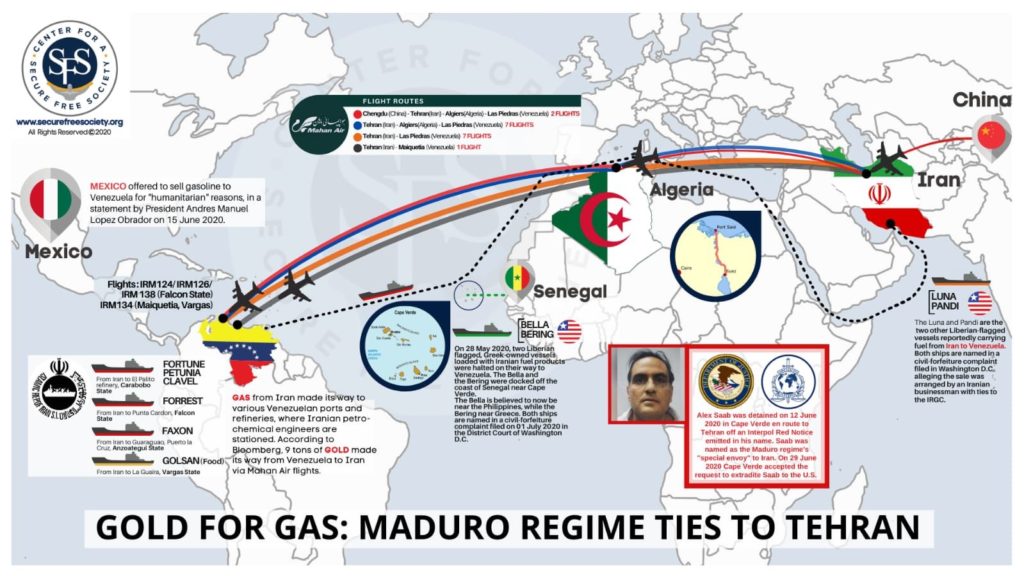
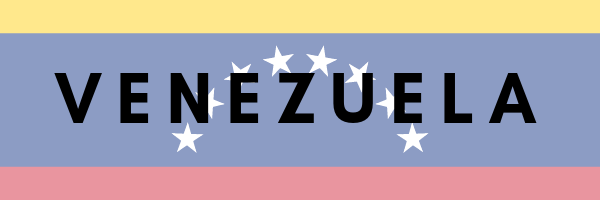
The Maduro regime sustained two blows to its illicit networks this past month. On June 12th, Maduro’s special envoy to Tehran, Alex Saab, was arrested and detained in Cape Verde off the coast of West Africa, now awaiting potential extradition to the United States where he is indicted on eight counts of money-laundering. The Saab case illustrates how the Maduro regime uses trade-based money laundering networks moonlighting as humanitarian assistance. Less than a month later, on July 4th, the Bank of England (BOE) denied the Maduro regime’s access to Venezuelan gold assets in the country by maintaining its recognition of President Guaidó as the rightful manager of Venezuela’s natural resources.
These setbacks have slowed the Maduro regime’s advances but not stopped its efforts at building an international military coalition. Aside from Cuban and Russian military, who recently sent eleven war teams to Venezuela, the increase of IRGC presence in the country has caught the attention of U.S. and regional officials. Deploying under the guise of fuel and food shipments, the IRGC is using its access and influence over oil, shipping, construction, transportation, and petrochemical state-owned enterprises in Iran to deploy its personnel to Venezuela. This was highlighted in early July with the establishment of the first Iranian supermarket in Venezuela, whose company, Ekta, is aligned with the IRGC.
Throughout Latin America, the Maduro regime is strengthening its alliances in a push to expand the Bolivarian Network. Mexican President Andrés Manuel López Obrador (AMLO) has extended a helping hand to Venezuela offering to sell gasoline to the fuel-starved country despite U.S. sanctions. In Bolivia, Evo Morales, the exiled former president, is threatening a comeback as his MAS political party pressured President Jeanine Añez to hold the national elections on September 6th.
- Venezuelan executive, detained in failed raid, says he was unwitting pawn. Franklin Durán — a wealthy Venezuelan business executive was convicted in a U.S. court in 2008 for working as an unregistered agent of Venezuela’s socialist government. – Washington Post on 14-JUL
- During an interview with Noticias Telemundo, President Trump stated that “something will be happening with Venezuela” and that the United States will “be very much involved.” Trump also vowed to “take care of the people of Venezuela” and support whoever the people of Venezuela elect and support as their leader. – Breitbart on 10-JUL
- The U.S. Department of Energy has determined that Cuba and Venezuela are “foreign adversaries” that might target the U.S. electrical grid, as the agency works to implement an executive order signed in May by President Donald Trump. – Miami Herald on 08-JUL
- The UK High Court has ruled against Venezuela’s Maduro regime in a legal battle over access to $1bn (£820m) of gold stored in the Bank of England. The country has “unequivocally recognized opposition leader Juan Guaidó as president”, rather than Maduro. – BBC on 02-JUL
- The United States lifted sanctions on Marshall Islands-based Delos Voyager Shipping Ltd and Greece-based Romina Maritime Co Inc that had been imposed last month over accusations the companies operated in the Venezuelan oil sector. – New York Times on 02-JUL
- On June 29th, Maduro ordered the EU ambassador Isabel Brilhante Pedrosa to leave the country within 72 hours. Her expulsion came hours after the EU placed sanctions on 11 Venezuelan officials for “undermining democracy and the rule of law in Venezuela.” – Jurist on 01-JUL
- Vanessa Neumann, ambassador of the Interim Venezuelan Government to the United Kingdom, explained the details of the unprecedented legal tussle between Maduro and Guaidó to take control of gold reserves. – PanAm Post on 29-JUN
- The U.S. military’s Southern Command said the missile destroyer Nitze conducted a “freedom of navigation” operation off Venezuela’s coast. Southern Command said the vessel sailed in an area outside Venezuela’s territorial waters, but within an area the Venezuelan regime “falsely claims to have control over.” – Reuters on 24-JUN
- Iranian officials said one of their cargo ships was expected to dock in Venezuela with food to launch the first Iranian supermarket in the South American nation. The Golsan’s delivery marks “another success in friendly and fraternal relations between two countries,” officials at the Iranian Embassy in Caracas announced in a tweet a day earlier. – ABC on 21-JUN
- Attorney for Alex Saab lacked U.S. legal authority to represent his client, but continued to defend him. Abelardo de la Espriella, attorney for Alex Saab, has not disclosed when he gave up defending his client in compliance with the United States Department Treasury, which requires non-citizens to obtain a special license to represent sanctioned persons. – Univision on 17-JUN
- In 2010, the Maduro regime sent $3.9 million to the Five Star Movement party that now governs Italy. – ABC Internacional on 16-JUN
- Venezuela’s Supreme Court, loyal to Maduro, ordered the takeover of two influential political parties opposed to the socialist government ahead of parliamentary elections expected this year. – Associated Press on 16-JUN
- Alex Nain Saab Moran, a Colombian businessman charged by U.S. authorities as a dealmaker for Nicolas Maduro’s regime in Venezuela, was detained in Cabo Verde, Africa on Friday, June 12th, according to his lawyer. – Bloomberg on 13-JUN
- State media reports Maduro lauds Russia, China, Iran, and Cuba as true friends of Venezuela for their help. – TASS on 08-JUN
THE BOLIVARIAN NETWORK
- Argentina promotes a technological and financial rapprochement with China that surprised the White House. In the midst of a geopolitical confrontation between Trump and Xi Jinping, the Foreign Ministry is advancing in strategic agreements that will strengthen the influence of Beijing in Argentina. – Infobae on 08-JUL (content in Spanish)
- Government suspected Alberto Scuncio’s company was guilty of money laundering before buying thousands of boxes of food. – El Mostrador on 07-JUL (content in Spanish)
- Evo Morales is being investigated in the “Audio Case,” as it’s known in Bolivia, for a telephone recording in which a voice, attributed to the former president, urges to block cities during the political and social conflict that the country went through last year. – El Mundo on 07-JUL (content in Spanish)
- Fabián Gutiérrez, a former private secretary to ex-presidents Néstor Kirchner and Cristina Fernández de Kirchner, has been found dead. At least four individuals have been arrested and three have admitted to the crime. – Buenos Aires Times on 04-JUL
- Though Evo Morales remains banned from running in September’s election and facing arrest if he returns, the former Bolivian president is masterminding opposition to right-wing interim leader Jeanine Añez. – Buenos Aires Times on 02-JUL
- Áñez enacted the election law “under pressure” from Mesa and MAS. She did it with three clarifications: that she never had the intention of extending herself in power, that the government will help to ensure a safe election, and that the elections are an “opportunity to unite.” – La Razón on 25-JUN (content in Spanish)
- The United States blacklisted Mexico’s Libre Abordo and a related company, accusing them of helping Caracas evade U.S. sanctions in the first formal action by the U.S. Treasury Department against Mexican firms involved in trading Venezuelan oil. – Reuters on 18-JUN
- During a webinar at National University of Lanús in Argentina, Evo Morales assured that his party the Movement to Socialism (MAS) “will regain the political power of Bolivia” and added that this country today “lives a double pandemic, that of life and that of the economy ” – UNLA on 16-JUN
- Mexican President Andrés Manuel López Obrador said he would be willing to sell gasoline to Venezuela for humanitarian reasons despite United States sanctions against the South American nation. – PBS on 15-JUN
- El Salvador’s president says that a stringent quarantine imposed to fight COVID-19 has legally expired and a gradual reopening of the economy will begin June 16th. The Central American nation’s Supreme Court ruled that the strict measures decreed by President Nayib Bukele were unconstitutional. – Associated Press on 12-JUN
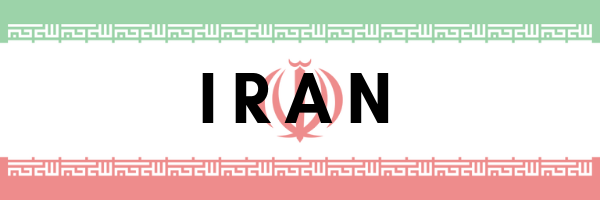
Iran continues to come out of the shadows in Venezuela, despite the blocking of certain tankers en route to the Caribbean. After the five original Iranian-flagged tankers arrived in Venezuela, delivering approximately 1.5 millions barrels of fuel with promises for more, a separate set of Liberian-flagged tankers were blocked through U.S. diplomatic and economic pressure. Two of these vessels were registered in Greece, and detained off the coast of Senegal near Cape Verde. The U.S. Treasury also subsequently sanctioned the captains of the five original tankers from Iran and the additional four Liberian-flagged vessels are part of a civil forfeiture complaint in the District of Columbia that alleges these tankers are part of a strategic alignment between Iran National Oil Company and the IRGC.
The presence of Iran’s clerical army, the IRGC, in Venezuela was further confirmed with the opening of the Islamic Republic’s first supermarket in Caracas complete with well known Iranian military-food brands, such as Delnoosh and Varamin. But while attention is placed on Venezuela, Iran has been quietly increasing its petrochemical exports to Brazil. A recent report claims at least two Iranian vessels, Bavand and Termeh, made deliveries to the Imbituba port in southern Brazil between March and April this year.
Iran’s renewed foray into South America comes at a time when mysterious explosions have been taking place at or near various nuclear facilities throughout the country, one destroying an advanced centrifuge production center near the Natanz uranium-enrichment complex. Iran insists that the initial explosions were due to gas leaks and outright denies the more recent blasts. As things intensify in Iran, and conflict erupts with its proxy networks in the Middle East, Latin America seems to be of increasing interest for the Islamic Republic.
- State media reports according to Ali Saleh-Abadi, Managing Director of Export Development Bank of Iran, Iran Venezuela Bi-National Bank, which is a subsidiary of the Export Development Bank, is going through the necessary processes for entering the stock market. – Tehran Times on 11-JUL
- State media reports President Hassan Rouhani said that Iran and Venezuela should deepen “strategic” and “friendly” ties. He made the remarks in a message to Nicolás Maduro on the occasion of the anniversary of Venezuela’s independence. – Tehran Times on 05-JUL
- An Iranian conglomerate owned by the country’s military and tied to its missile program has established a retail foothold in Venezuela, according to officials and records detailing the move, deepening Tehran’s involvement with the Maduro government. The Iranian firm is working with the Maduro government’s troubled emergency food program, which is the subject of U.S. enforcement action as an alleged money-laundering operation. – Wall Street Journal on 05-JUL
- U.S. federal prosecutors are seeking to seize four tankers sailing toward Venezuela with gasoline supplied by Iran, the latest attempt to disrupt ever-closer trade ties between the two heavily sanctioned anti-American allies. – Associated Press on 02-JUL
- Iran reinforces its military influence over Venezuela. It now conducts courses for Venezuelan military personnel to train them in matters of propaganda and civil war. – PanAm Post on 25-JUN
- State media reports the new Nicaraguan ambassador to Tehran presented his credentials to Iranian President Hassan Rouhani and claimed that Iran is a “model of bravery.” – Fars News on 25-JUN
- The United States imposed sanctions on five Iranian ship captains who delivered oil to Venezuela, and Secretary of State Mike Pompeo reaffirmed Washington’s backing for Venezuelan opposition leader Juan Guaidó. – Reuters on 24-JUN
- Iran sends food to Venezuela in latest delivery: The Iranian embassy in Venezuela announced that the Golsan ship is scheduled to arrive this Sunday in order to open the first Iranian supermarket in the Venezuelan country. – Peru21 on 21-JUN
- Nicolás Maduro’s regime negotiated the purchase of a huge airbus to create a direct air bridge between Venezuela and Iran. Sources close to the negotiation informed the PanAm Post that the giant aircraft was owned by Avior and will now go to state-owned Conviasa. – PanAm Post on 19-JUN
- Iran has been racing to step up exports of petrochemicals and tap new markets to compensate for sliding oil sales, Iranian and international industry sources said, but now risks losing that crucial revenue as Washington tightens the screw on sanctions. – Reuters on 12-JUN
HEZBOLLAH
- According to a report in La Nacion, Argentina’s federal judiciary froze the funds for Hezbollah; its external security organization, Islamic Jihad; its boss, Hassan Nasrallah; Salman El Reda, who faces an arrest warrant for the AMIA attack; and the Barakat clan, the family of merchants based in the Triple Frontier who are accused of money laundering and terrorist financing. – Jerusalem Post on 12-JUL
- A large group of bipartisan lawmakers from both chambers of Congress sent a letter to the Delegation of the European Union to the United States, urging the EU to designate the entirety of Hezbollah as a terrorist organization. – Jerusalem Post on 27-JUN
- A new Al Arabiya documentary exposes the degree to which the Iranian-backed terrorist organization Hezbollah has tried to get a stake in the Colombian drug business. According to the new movie, Hezbollah tried to partner with drug cartels as early as the 1990s, but only in 1995 did it finally get fully involved thanks to the collapse of the Cali cartel and the fragmentation of the various drug organizations in smaller entities. – Israel Hayom on 11-JUN
THE NISMAN/AMIA CASE
- “The attack on AMIA was coordinated and planned by Hezbollah,” confirmed Gonzalo Miranda, one of the prosecutors in the case. Miranda was recently incorporated into the Fiscal Unit that investigates the terrorist attack perpetrated 26 years ago. – Infobae on 08-JUL (content in Spanish)
- The Federal Chamber called on Justice to focus on the investigation of the perpetrators of the attack on AMIA, their instigators, and those responsible for bringing them to trial and instructed the mechanisms of the United Nations Security Council to hand over or try Salman El Reda, a suspect who is taking refuge in Lebanon. – La Nación on 03-JUL (content in Spanish)
- Israel’s Mossad provided the intelligence information that enabled Argentine prosecutor Alberto Nisman to prove that Iran orchestrated the 1994 AMIA terrorist bombing in Buenos Aires, in which 85 people were killed, an Israeli TV documentary claimed. – Times of Israel on 12-JUN
TURKEY
- State media reports a new trade deal between Turkey and Venezuela, officially titled “Trade Development Agreement,” will enter into force on August 21st. The agreement was hammered out on May 17, 2018, after Turkish President Recep Tayyip Erdoğan’s visit to Venezuela, during which he pledged to help Maduro combat sanctions by the United States and its allies. – Ahval on 06-JUL
UAE
- State media reports President of Costa Rica Carlos Alvarado and Theodore Ribera, Minister of Foreign Affairs of the Republic of Chile expressed their gratitude to the UAE for the aid plane sent as part of the UAE’s efforts to help various countries around the world in containing the spread of COVID-19. – Gulf Today on 13-JUN
QATAR
- State media reports the Argentine ambassador to Qatar stressed that relations are deep and solid. – Gulf Times on 08-JUL
- The Embassy of the State of Qatar to Mexico organised a webinar on the occasion of the 45th anniversary of diplomatic relations between Qatar and Mexico, with the participation of prominent personalities. – Gulf Times on 03-JUL
- State media reports Haiti’s mission in Doha, established in August 2019, aims to strengthen its ties with Qatar, focusing on trade and investments, cultural exchanges and sports diplomacy. – Gulf Times on 01-JUL
- Three stakeholders, including Qatar Airways, agreed on loaning $900 million to the South American carrier, LATAM. – Simple Flying on 30-JUN
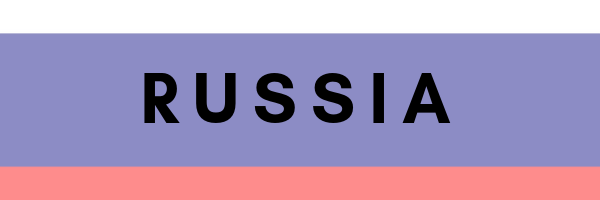
A public referendum in Russia recently reinforced a court ruling allowing Vladimir Putin to potentially remain in power for an additional sixteen years, until 2036, further entrenching Moscow’s presence in Venezuela. Utilizing the United Nations Security Council as its preferred political battleground, Russia continues to use the Venezuela crisis as a way to delegitimize the U.S. In June, the Maduro regime sent a communication to the Security Council condemning U.S. measures that prevent VRIC humanitarian aid from entering Venezuela. This attempt to victimize Venezuela, positions Russia to further provoke the U.S. into a humanitarian standoff with the Maduro regime.
Elsewhere in the region, Russia is openly flexing its muscles in the space domain. U.S. warplanes recently intercepted Russian aircraft near the Aleutian Islands after lingering for eight hours in the Alaskan Air Defence Identification Zone (ADIZ). Meanwhile, further south, Russia has engaged Brazil to begin working on a Glonass satellite navigation station in the Para State. If completed, this will be the first Russian space-based satellite station in northern Brazil, and the sixth in the country overall, potentially militarizing the space domain in South America.
- Nicaragua’s ambassador to the Russian Federation, Alba Azucena Torres Mejía met at the Embassy headquarters with Andrey Bichkov, Managing Director for Financial Institutions and Sergey Seletskiy, Managing Director for Financial Institutions at VEB-RF Bank. – Barricada on 11-JUL (content in Spanish)
- A 47-year-old woman is accused of taking her 6-year-old daughter and top secret U.S. government documents to Mexico to try to broker a deal with Russian officials. – Charlotte Observer on 07-JUL
- State media reports the Precision Instrument-Making Systems research and production corporation (part of Russia’s State Space Corporation Roscosmos) will place a non-request measuring station of the SM-Glonass satellite navigation system in the city of Belem (the state of Para in Brazil). – TASS on 07-JUL
- State media reports on the occasion of the 209th anniversary of Venezuelan Independence and Day of the Bolivarian National Armed Forces, this July 5th, Russian Minister of the People’s Power for Defense and General-in-Chief, Vladimir Padrino López, recalls the revolutionary voices of Simón Bolivar and Generalísimo Francisco de Miranda and the struggles that our fellow people waged. – Bolivarian Government of Venezuela on 05-JUL (content in Spanish)
- Russia disclosed terms of a previously agreed debt restructuring with Venezuela that show annual payments from Caracas to Moscow increase five fold starting in 2023. – New York Times on 01-JUL
- The Russian government of Vladimir Putin, with the complicity of Nicolás Maduro and the Venezuelan military high command, has recently installed 11 war teams in different states of the Latin American country. – Háblame on 29-JUN (content in Spanish)
- State media reports U.S. warplanes intercepted four Russian reconnaissance aircraft near Alaska. The Russian Tu-142’s came within 65 nautical miles south of Alaska’s Aleutian island chain and “loitered” in the Alaskan Air Defence Identification Zone (ADIZ) for eight hours. – South China Morning Post on 28-JUN
- Venezuelan Foreign Minister Jorge Arreaza, who headed his country’s delegation at the Victory Parade in Moscow, announced his meeting with Russian Deputy Prime Minister Yuri Borisov. The head of Venezuelan diplomacy also met with Russian Foreign Minister Sergey Lavrov, with whom he reviewed the agenda of the High-Level Commission between the two States. – El Universal on 25-JUN (content in Spanish)
- Russia vowed to support Venezuela in its campaign to counter U.S.-backed regime change after the Pentagon sailed warships nearby in the Caribbean to challenge the Latin American country. Russian Foreign Minister Sergey Lavrov called Venezuela his country’s “reliable friend both in Latin America and in the international arena as a whole” during a meeting with Venezuelan counterpart Jorge Arreaza in Moscow. – Newsweek on 24-JUN
- PhosAgro CEO Andrey Guryev, who heads the Russia–Brazil and Russia–Argentina business councils, discussed prospects for strengthening cooperation through the councils with the ambassadors from the two Latin American countries. – PR Newswire on 15-JUN
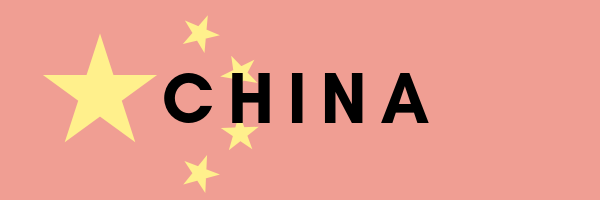
This month, the People’s Republic of China (PRC) continues to encroach into space and wage war in cyberspace. The PRC launched the last satellite in their global tracking system, BeiDou, creating a competitor to the U.S Global Positioning System. China has also used one of its satellites to conduct space-based quantum communication for the first time, a stepping stone to ultra secure networks. As China works to secure their communications, the Trump Administration has banned Chinese social media apps and passed an executive order to secure the U.S. power grid, stating that foreign adversaries, including China, Cuba, Russia, and Venezuela, are exploiting vulnerabilities in the system.
The PRC has been able to shore up international support from its allies for their implementation of the new national security law. Along with placing Hong Kong under a one system, one country rule, the new law has global implications. Ratified treaties would have to abide by the new national security law, allowing China the ability to pursue extradition from those countries. This could pose a risk to those who oppose the PRC in countries where the treaty is ratified. In Latin America, the new Hong Kong National Security Law has been defended by Cuba, Venezuela, Nicaragua, and Suriname.
Even as President Trump and Mexico’s AMLO met in Washington D.C. to sign a declaration highlighting the importance of trade cooperation and the historic USMCA, China continues to encroach on the U.S. neighbor. A plane arriving in Mexico City from Shanghai on June 25th has become the 21st flight completed since April. This air bridge has been made possible due to an agreement between the two countries to cooperate fighting COVID-19. This is in addition to the two countries working together to develop a vaccine to give weight behind what China has dubbed the “health silk road.”
- Countries criticizing or defending China’s security law for Hong Kong at the UN. – Axios on 03-JUL
- On June 23, 2020, China completed construction of its BeiDou Positioning and Navigation System (BDS) by launching the 55th and final satellite for its BDS3 navigation constellation. With this launch, China now enjoys a fully independent self-reliant global navigation satellite system (GNSS) as an alternative to the U.S. Space Force-maintained Global Positioning System (GPS). – The Diplomat on 01-JUL
- The United States will halt exports of U.S.-origin defense equipment to Hong Kong and take steps to impose new restrictions on shipments of dual-use technologies because of actions Beijing has taken that erode the former British colony’s limited self-rule. – Politico on 29-JUN
- Mexico is in talks with the Chinese government and private Chinese laboratories, as well as the University of Oxford and company AstraZeneca about running trials for experimental COVID-19 vaccines. – Reuters on 29-JUN
- State media reports Venezuela sent a message to China congratulating 46 years of diplomatic relations. In the message, Venezuela supported the “One China” policy in regards to Hong Kong. – Prensa Latina on 28-JUN
- State media reports an airlift program carrying medical supplies from China to Mexico was extended this week after completing the first planned flights. A plane, which arrived June 25th in Mexico City from Shanghai, has become the 21st flight completed since April 7th. The air bridge has been made possible due to an agreement between the two countries to cooperate in fighting the pandemic. – ECNS on 28-JUN
- On June 18th, the high-level video conference titled, “Belt and Road International Cooperation: Combating COVID-19 with Solidarity,” was held in Beijing. It was attended by ministers from 25 countries in the Caribbean, World Health Organization (WHO) Director General Tedros Adhanom Ghebreyesus, and Under-Secretary-General of the United Nations and Administrator of the UN Development Programme Achim Steiner. – Jamaica Gleaner on 28-JUN
- Venezuela’s oil exports have collapsed since the U.S. placed sanctions on its state producer, but some crude from the OPEC member is still making its way to buyers in Asia. – BNN Bloomberg on 16-JUN
- The U.S. is in talks with Brazil around financing its 5G infrastructure projects in order to lock Huawei out of the country’s next-generation networks, the US ambassador to Brazil said. – Silicon on 15-JUN
- The Sao Paulo state government announced Brazil’s Instituto Butantan reached an agreement with the Chinese laboratory Sinovac Biotech to produce an experimental vaccine against the coronavirus. – Associated Press on 11-JUN
VRIC MEDICAL DIPLOMACY
- State media reports Russia provides 320 coronavirus testing systems to Latin American countries. The Russian Foreign Ministry added that the shipment also contained over 37,000 pieces of personal protective equipment. – TASS on 03-JUL
- State media reports Russia sent humanitarian aid to Latin America in the Azur Air airline’s flight, aiming to transport Russian citizens trapped in Latin America after the closure of airports due to the COVID-19 pandemic. – Prensa Latina on 02-JUL
- State media reports the Chinese Embassy in Brazil delivered the first batch of medical equipment and supplies donated by the Chinese government to help the country fight the COVID-19 pandemic. – Xinhua on 03-JUL
- Brazilian health regulator Anvisa approved clinical trials of a potential coronavirus vaccine developed by China’s Sinovac. – Reuters on 03-JUL
- State media reports Venezuela has received a shipment with more than 20 tons of humanitarian technical aid from China and Russia to fight the SARS-CoV-2 coronavirus, Health Minister Carlos Alvarado informed. – Prensa Latina on 30-JUN
- State media reports medical supplies donated by Turkey to Paraguay arrived Tuesday June 23rd. The donation valued at $1.4 million includes 100,000 medical/surgical masks; nearly 30,000 N95 masks; 50,000 protective overalls; nearly 2,000 protective glasses; 50,000 shoe covers; and 50,000 gloves. – Andalou Agency on 23-JUN
- State media reports Turkey signed an agreement to send medical supplies to Venezuela as part of efforts against the coronavirus. – Daily Sabah on 11-JUN

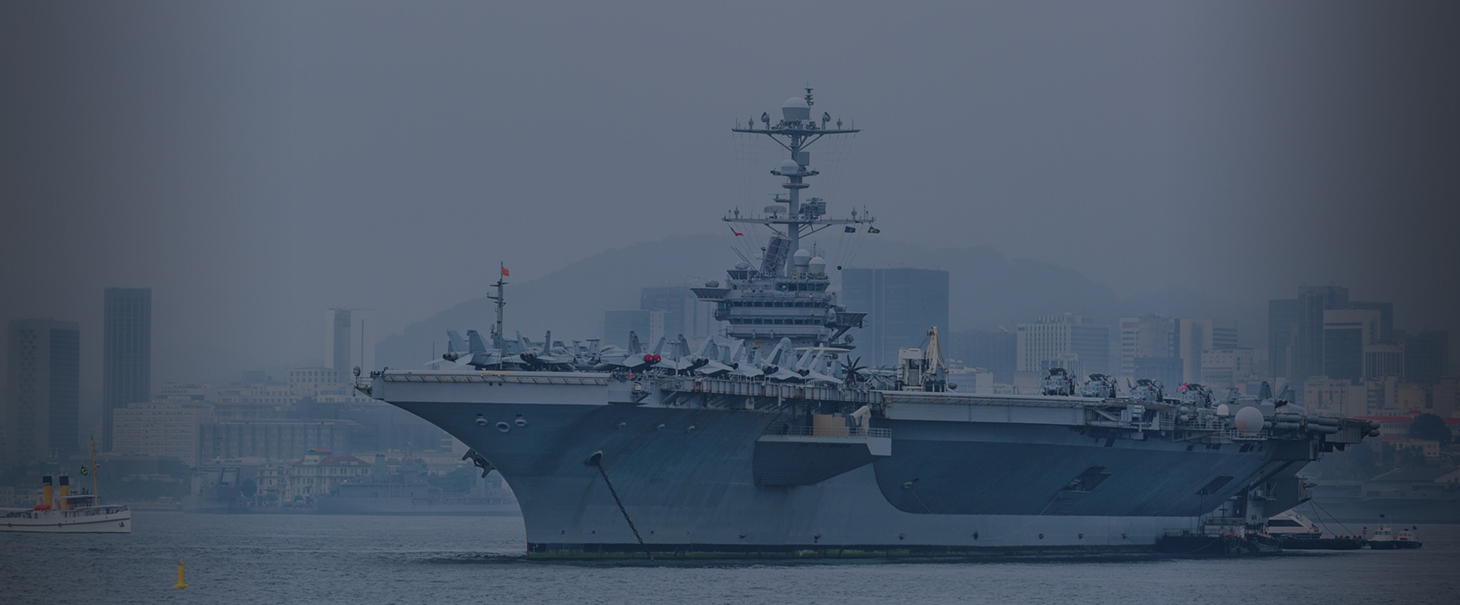
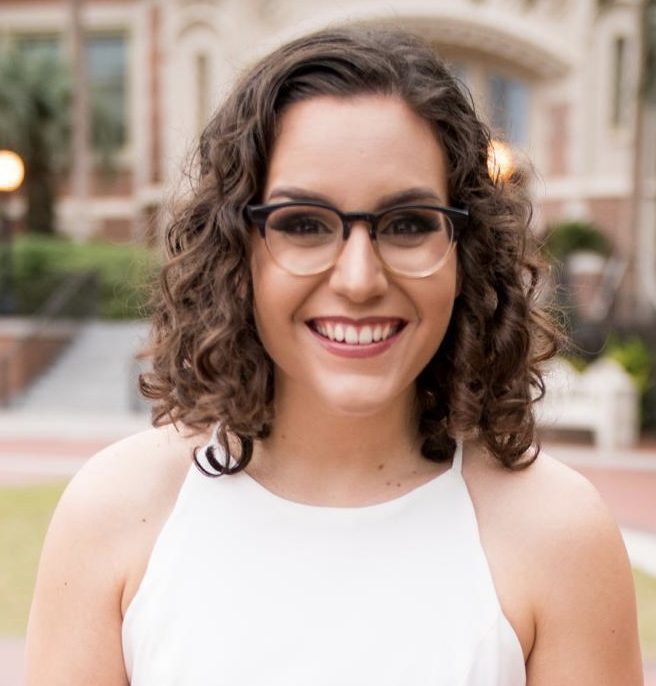 Christina Armes Hunter
Christina Armes Hunter